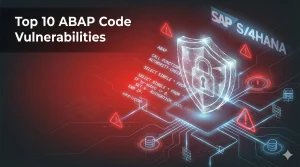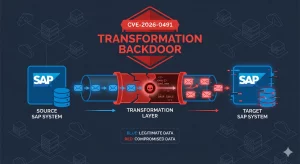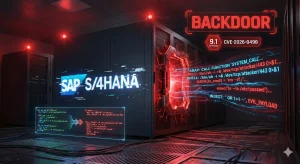A new security flaw has been identified in SAP S/4HANA’s eProcurement module, potentially exposing the system to Cross-Site Scripting (XSS) attacks. The vulnerability, tracked as CVE-2024-42378, stems from insufficient encoding of user-controlled inputs, allowing malicious scripts to be executed within the application.
Description
The vulnerability affects the eProcurement module on SAP S/4HANA. It is classified as a Reflected Cross-Site Scripting (XSS) vulnerability, which occurs due to weak encoding of user-controlled inputs. This security flaw allows attackers to inject and execute malicious scripts in the context of the application, potentially compromising user sessions and sensitive data.
The vulnerable function identified is: /SRMERP/CL_WD_INBOUND_HDLR IF_HTTP_EXTENSION~HANDLE_REQUEST
Impact
While the vulnerability does not affect the availability of the application, it can have minor impacts on confidentiality and integrity. Potential consequences include:
- Unauthorized access to user session data
- Theft of sensitive information
- Manipulation of application behavior
- Phishing attacks against application users
- Potential for more severe exploits if combined with other vulnerabilities
The CVSS v3.0 Base Score for this vulnerability is 6.1 out of 10, indicating a medium severity level.
Solution
SAP has addressed this vulnerability by providing patches for affected software components. To mitigate the risk, customers should implement the correction instructions or support packages referenced in the SAP Security Note.
Affected software components and versions include:
- SAP_APPL (versions 606, 617, 618)
- S4CORE (versions 102 to 108)
SAP recommends deactivating the corresponding obsolete coding to resolve the issue.
Proof of Concept (PoC)
While we won’t provide a full exploit, a simplified PoC for this type of vulnerability might involve:
- Identifying an input field or URL parameter in the eProcurement module that reflects user input
- Crafting a malicious payload that includes JavaScript code
- Submitting the payload and observing if the script executes in the application context
It’s crucial to note that attempting such actions on production systems without proper authorization is illegal and unethical.






